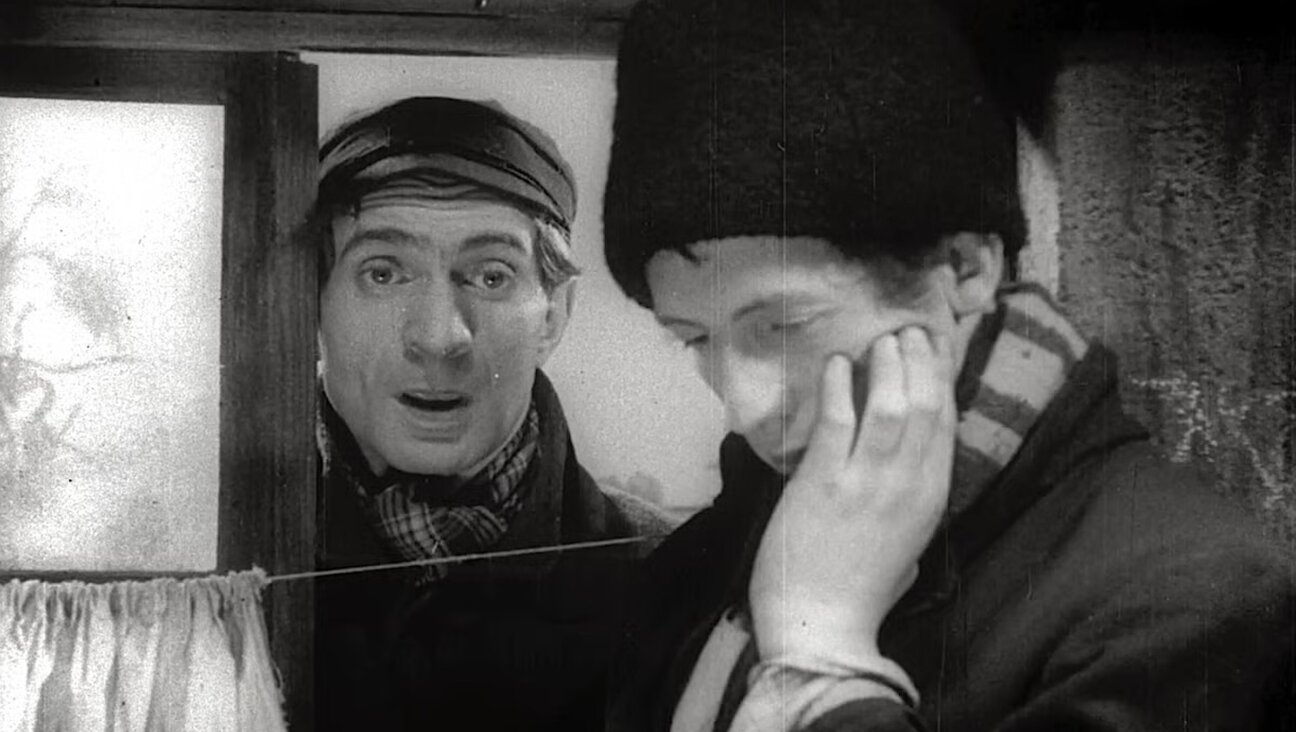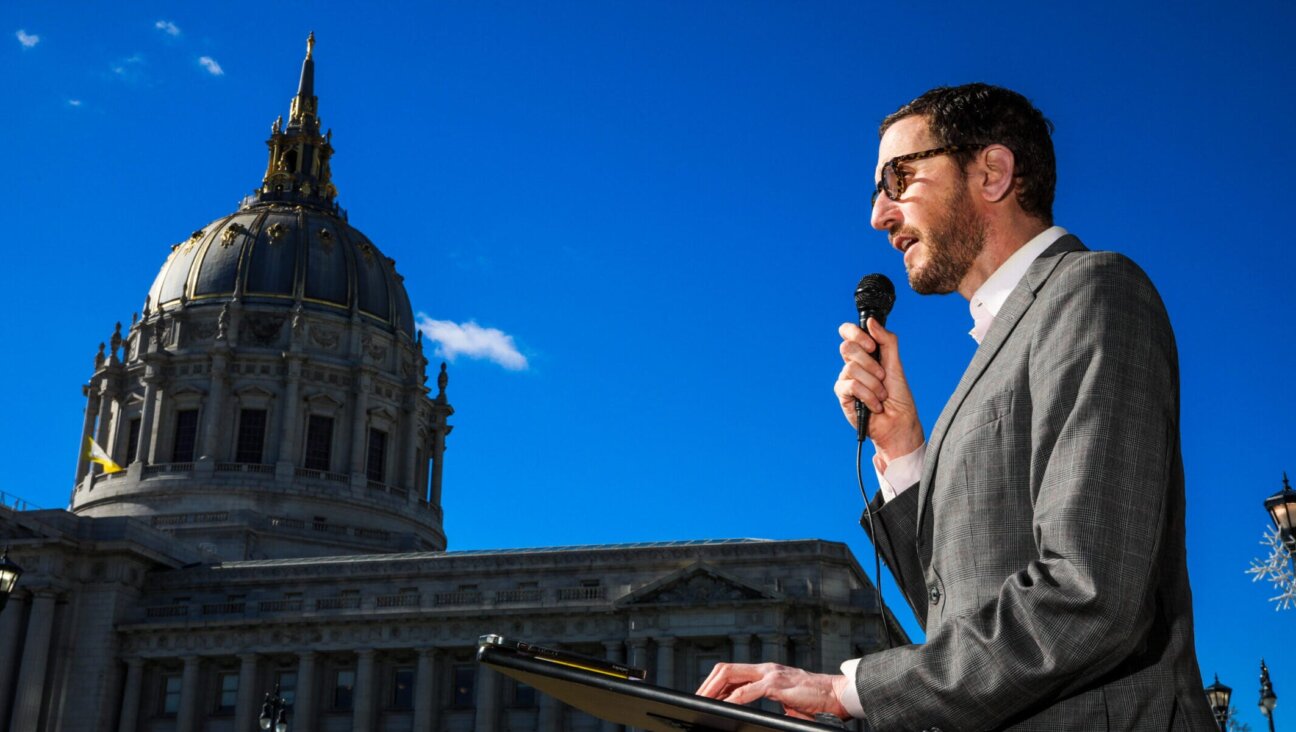A ‘Nakba’ for Freedom of Expression
There are about two million Native Americans in the United States. Let us imagine that they decide to commemorate one of the cruelest chapters in their history, the forced expulsion of the Cherokee Nation from Georgia in 1838 and 1839. They were marched a thousand miles to Oklahoma, where those who had survived the march were resettled. The episode is referred to as the Trail of Tears, and it is not difficult to imagine that American Indians might want to make it a special memorial day.
Then let us suppose that the secretary of state of the United States denounces the idea, and proposes that it be outlawed, that anyone taking part in a commemoration of the Trail of Tears will be subject to an imprisonment of up to three years.
Preposterous, no?
Preposterous, yes. But though the analogy is at best imperfect, that is roughly what is happening in Israel right now. Yisrael Beiteinu, the political party headed by Israel’s new foreign minister, Avigdor Lieberman, has proposed just such a law with regard to the day on which many Arab citizens of Israel mark what has become known as al-Nakba — the catastrophe — when Palestinians recall their displacement during Israel’s War of Independence.
Not so fast, you might say. After all, do we not know that the Arabs left Israel back then because their leaders told them to get out of the way while the fighting was going on, that as soon as the Jews were defeated they’d be able to return to their homes? And that some left on their own, out of panic? That’s totally different from the Native American experience.
Note well: At least since the 1979 publication of Yitzhak Rabin’s memoirs, we’ve known for sure that a significant number of Israel’s Arabs were forced out of their homes and their towns and villages; Rabin, following David Ben-Gurion’s orders, engaged in what he himself called “driving out” the Arabs of Lydda and Ramle. (The passages dealing with this issue were actually omitted from the early editions of Rabin’s memoirs at the insistence of Israeli government censors, though the content of his account from the original manuscript was reported at the time by The New York Times.)
Debate still swirls regarding how many of the hundreds of thousands of Palestinian refugees left their homes for this reason, how many for other reasons, how much of whatever policy that was employed was improvised on the spot, how much was centrally planned. We do know, however, that Israel decided very early on that those who left their homes would not be allowed to return. And for the Palestinians, that meant: catastrophe.
Ought not we, who “weep when we remember Zion,” even though the particular exile from Zion that gave birth to those words ended 2,547 years ago, understand why a people might wish to remember? Sure, there are and will be those who seek to politicize the remembering, to use it as an occasion to denounce Israel’s continuing occupation of the West Bank or even Israel’s existence as a Jewish state. So? You can’t legislate memories, and you shouldn’t regulate their expression, even when you find their expression offensive.
The day may yet come when Lieberman and those who think as he does decide to require that Israel’s Palestinian citizens — the people promised in Israel’s Declaration of Independence “complete equality of social and political rights… irrespective of religion, race or sex” and guaranteed “freedom of religion, conscience, language, education and culture” — be prepared to sing out loud Israel’s national anthem. After all, is that not a minimal expression of loyalty?
Check the words: “As long as deep in the heart the soul of a Jew yearns, and forward to the East, to Zion, an eye looks out, our hope will not be lost, the hope of 2,000 years: To be a free nation in our land, the land of Zion and Jerusalem.”
Alright, perhaps even Lieberman would not be so insensitive as all that. Maybe his current proposal, the one declaring it illegal to mark the Nakba, will sufficiently satisfy his demagogic instincts for a while. (Why demagogic? Among other things, the law would surely not be enforceable. Declare public commemoration of the Nakba illegal, and you guarantee that almost all of Israel’s one million Palestinians — and, presumably, a decent number of Jews — will violate the law, some out of commitment to memory, others out of commitment to freedom of speech and of conscience.)
The sad and stubborn fact is that Israel in its 61st year is no closer than it was in its first year to figuring out how it is supposed to feel or what it is supposed to do about the fact that 20% of its own citizens are not Jewish. Most of the Palestinians and some of their Jewish “post-Zionist” supporters say it is time for Israel to redefine itself as “a state of all its citizens,” meaning a state that does not provide preferential treatment to Jews — more bluntly, not a Jewish state.
Others concoct plans to “remove” some large fraction of the Palestinians, whether, like Lieberman, by redrawing Israel’s boundaries to exclude the areas of their densest settlement or by in some other way “encouraging” their departure. Very few people have spent much time or energy in thinking through what a Jewish state that genuinely seeks to do right by its non-Jewish minority must do. Must it change the words of its nation’s anthem? Must it develop a comprehensive program of national service? Must it end all forms of discrimination in government programs? Must it offer some measure of cultural autonomy to the minority? And so forth.
One reason so little thought has been invested in these kinds of questions is that trying to come up with responsible answers is sure to produce a headache. There are no easy answers, no neat precedents that offer guidance on what the words “Jewish state” imply. There are, to be sure, dozens (if not hundreds) of NGOs in Israel seeking to foster productive co-existence between Jews and Palestinians, but they hardly set the tone for the culture at large.
One might even say that in this perplexing arena, there is only one certainty: The provocateur Avigdor Lieberman is a Nakba — a catastrophe — for the State of Israel.
















